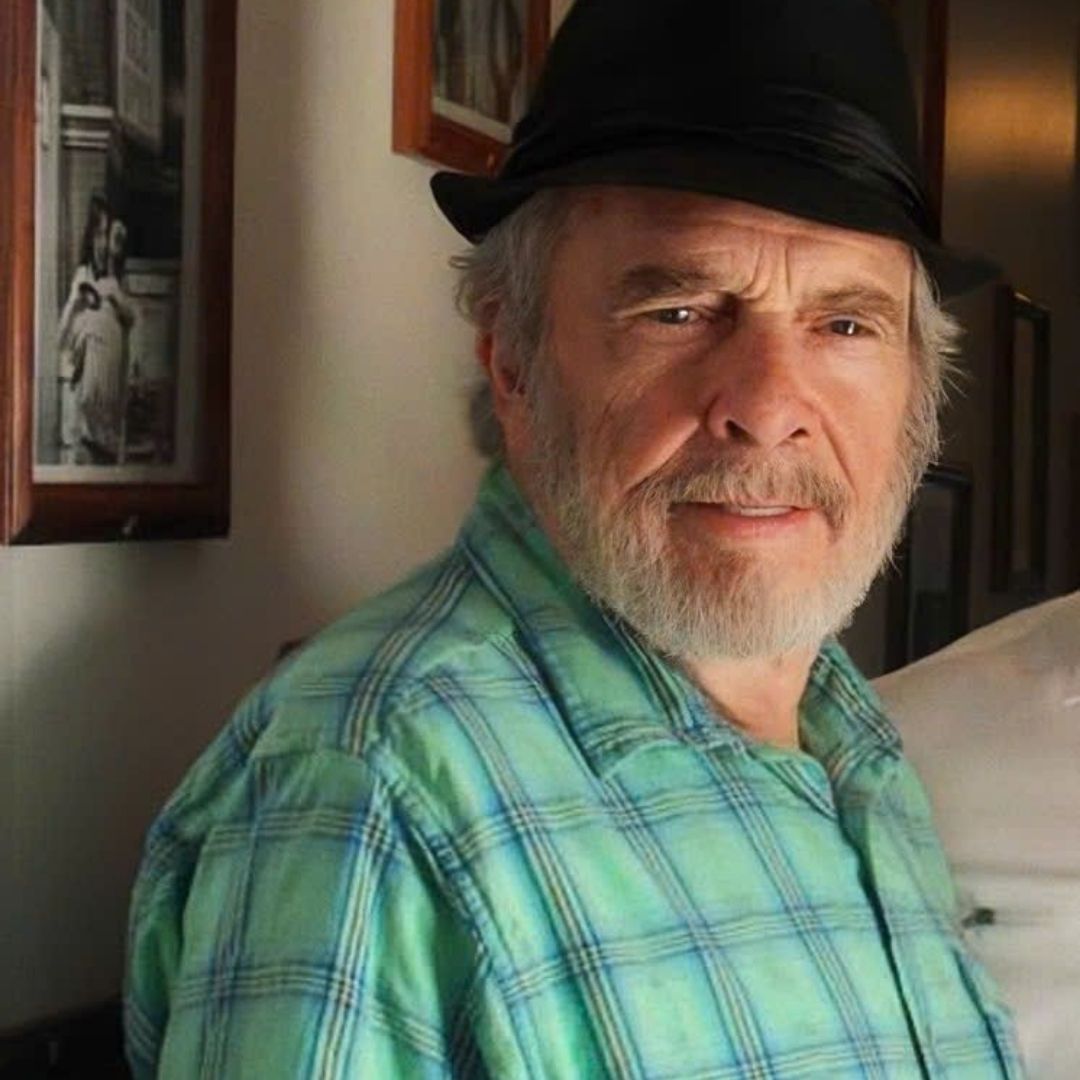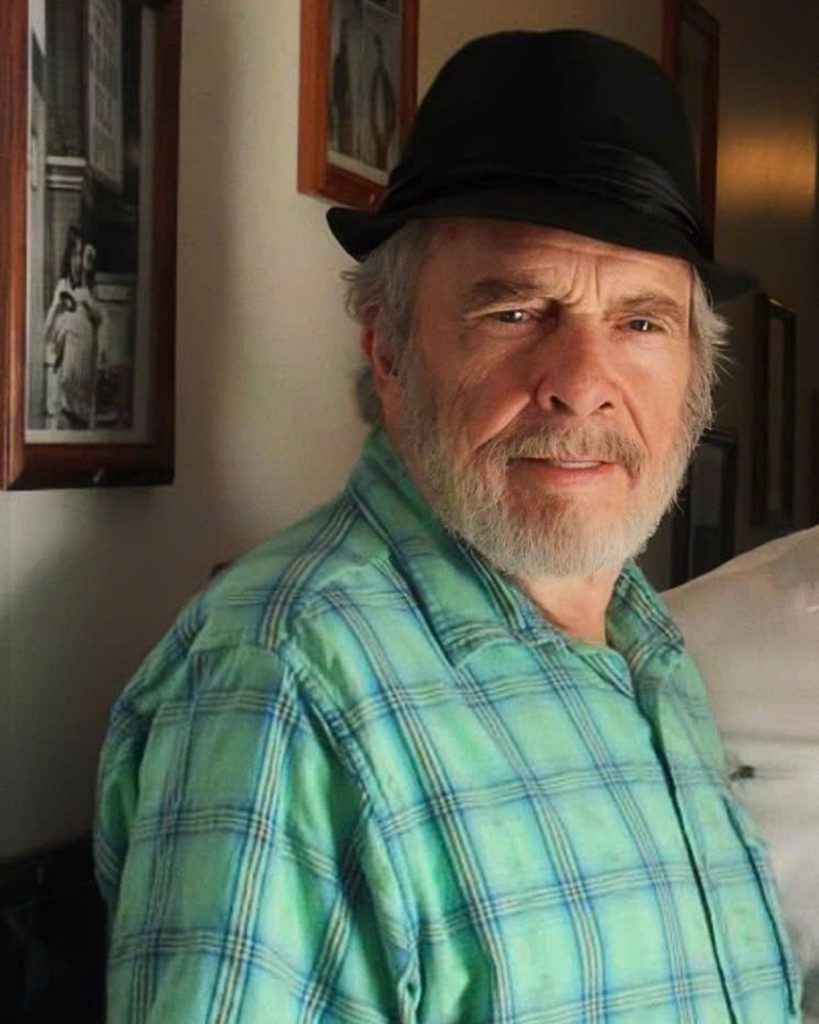Introduction
I still remember the first time I heard “Okie from Muskogee” crackling through my granddad’s old radio in his dusty garage. It was a hot summer afternoon, and he was tinkering with an engine, humming along to Merle Haggard’s twangy voice. He’d grin and say, “This one’s for the folks who keep it simple.” Little did I know then that this song, born from a casual jest on a tour bus, would become a cultural lightning rod, sparking debates about patriotism, rebellion, and the American spirit that echo even today.
About The Composition
- Title: Okie from Muskogee
- Composer: Merle Haggard and Roy Edward Burris
- Premiere Date: Released as a single in September 1969
- Album/Opus/Collection: Okie from Muskogee (album)
- Genre: Country (Traditional Country)
Background
“Okie from Muskogee” emerged from an impromptu exchange between Merle Haggard and his drummer, Roy Edward Burris, while traveling through Oklahoma on their tour bus during the height of the Vietnam War in 1969. Haggard, a former inmate turned country music star, spotted a sign for Muskogee and quipped about how its residents likely didn’t indulge in the counterculture habits sweeping the nation—like smoking marijuana or burning draft cards. What started as a playful riff between bandmates quickly morphed into a song that captured the ethos of small-town America. Haggard later revealed to The Boot that his inspiration stemmed from a mix of frustration with Vietnam War protests and a deep appreciation for freedom, shaped by his time in prison. Released in September 1969, the song rocketed to No. 1 on the Billboard Hot Country Singles chart by November, holding the spot for four weeks and even crossing over to No. 41 on the pop charts. While some hailed it as a patriotic anthem, others debated whether it was a satire of conservative values—a tension Haggard himself never fully resolved. It became one of his most iconic works, cementing his status as a country music legend.
Musical Style
“Okie from Muskogee” is a quintessential traditional country tune, characterized by its straightforward structure and no-frills instrumentation. The song follows a classic verse-chorus form, driven by Haggard’s rich, resonant baritone and backed by The Strangers, his tight-knit band. The arrangement features twangy electric guitars, a steady drumbeat, and subtle basslines—hallmarks of the Bakersfield sound Haggard helped pioneer. There’s no flashy production here; the simplicity amplifies the song’s conversational tone, as if Haggard’s just chatting with you over a beer. The live version, recorded in 1970 in Philadelphia for The Fightin’ Side of Me album, adds an extra layer of energy with an enthusiastic crowd chiming in, turning it into a communal singalong. That raw, unpolished quality makes it feel both timeless and grounded in its era.
Lyrics/Libretto
The lyrics of “Okie from Muskogee” paint a vivid picture of a proud, conservative Everyman from Middle America. Lines like “We don’t smoke marijuana in Muskogee / We don’t take our trips on LSD” and “We still wave Old Glory down at the courthouse” celebrate a lifestyle that rejects the hippie counterculture in favor of traditional values—patriotism, respect for authority, and good ol’ fashioned fun (think “white lightning” over psychedelic drugs). The narrator’s pride in his roots shines through, but there’s a subtle wink in the delivery—was Haggard mocking this rigidity or embracing it? The ambiguity is part of its charm, inviting listeners to project their own beliefs onto the story. Paired with the upbeat melody, the words feel less like a sermon and more like a friendly boast, reflecting both defiance and nostalgia.
Performance History
The song’s studio version took off in 1969, but its live renditions truly cemented its legacy. The most famous live recording came from a 1970 concert in Philadelphia, released on The Fightin’ Side of Me, where the crowd’s fervor turned it into an anthem. Haggard performed it countless times, including at the White House in 1973 at Richard Nixon’s request—a nod to its resonance with the “silent majority.” Over the decades, it’s been covered by artists as diverse as The Beach Boys, Grateful Dead, and Willie Nelson, each bringing their own spin to its polarizing message. Its initial reception was explosive, winning the Country Music Association’s Single of the Year in 1970, though it also sparked parodies like Chinga Chavin’s “Asshole from El Paso,” highlighting its divisive nature. Today, it remains a staple in country music circles, beloved for its authenticity and debated for its intent.
Cultural Impact
“Okie from Muskogee” transcended music to become a cultural touchstone of the late 1960s. It gave voice to a segment of America feeling alienated by the era’s upheaval—think blue-collar workers and rural folks who saw the counterculture as a threat to their way of life. Its popularity coincided with Nixon’s rise and the “silent majority” narrative, making it a political lightning rod whether Haggard intended it or not. Beyond music, it’s popped up in films like Platoon and Convoy, amplifying its association with Vietnam-era tensions. Parodies and covers by counterculture icons like Phil Ochs and The Youngbloods (“Hippie from Olema”) flipped its script, proving its versatility as a canvas for commentary. It’s a song that’s been claimed, critiqued, and celebrated across ideological lines, embedding itself in the American psyche.
Legacy
More than five decades later, “Okie from Muskogee” endures as a snapshot of a divided nation—and a testament to Haggard’s knack for capturing complex emotions in deceptively simple songs. Its relevance today lies in its ability to spark conversation: Is it a relic of a bygone era or a mirror to ongoing cultural clashes? Haggard himself softened his stance over time, admitting in 2003 that he was “dumb as a rock” when he wrote it, reflecting a more nuanced view on the issues he once skewered. Yet its raw honesty and singable defiance keep it alive, touching audiences who connect with its pride or chuckle at its cheekiness. For performers, it’s a rite of passage in country music, a piece that demands both reverence and interpretation.
Conclusion
To me, “Okie from Muskogee” is more than a song—it’s a time machine to my granddad’s garage, a window into a turbulent past, and a reminder of music’s power to provoke and unite. Whether you hear it as a battle cry, a joke, or a bit of both, it’s worth a listen for its sheer audacity and heart. I’d recommend checking out the live 1970 Philadelphia recording for the full experience—the crowd’s energy is infectious. Grab a pair of headphones, give it a spin, and decide for yourself what it means in 2025. You might just find it sticks with you, too.
Video
Lyrics
We don’t smoke marijuana in Muskogee
We don’t take our trips on LSD
We don’t burn our draft cards down on Main Street
We like livin’ right, and bein’ free
We don’t make a party out of lovin’
We like holdin’ hands and pitchin’ woo
We don’t let our hair grow long and shaggy
Like the hippies out in San Francisco do
And I’m proud to be an Okie from Muskogee
A place where even squares can have a ball
We still wave Old Glory down at the courthouse
And white lightning’s still the biggest thrill of all
Leather boots are still in style for manly footwear
Beads and Roman sandals won’t be seen
Football’s still the roughest thing on campus
And the kids here still respect the college dean
Everybody!
And I’m proud to be an Okie from Muskogee
A place where even squares can have a ball
We still wave Old Glory down at the courthouse
And white lightning’s still the biggest thrill of all
We still wave Old Glory down at the courthouse
In Muskogee, Oklahoma, USA

